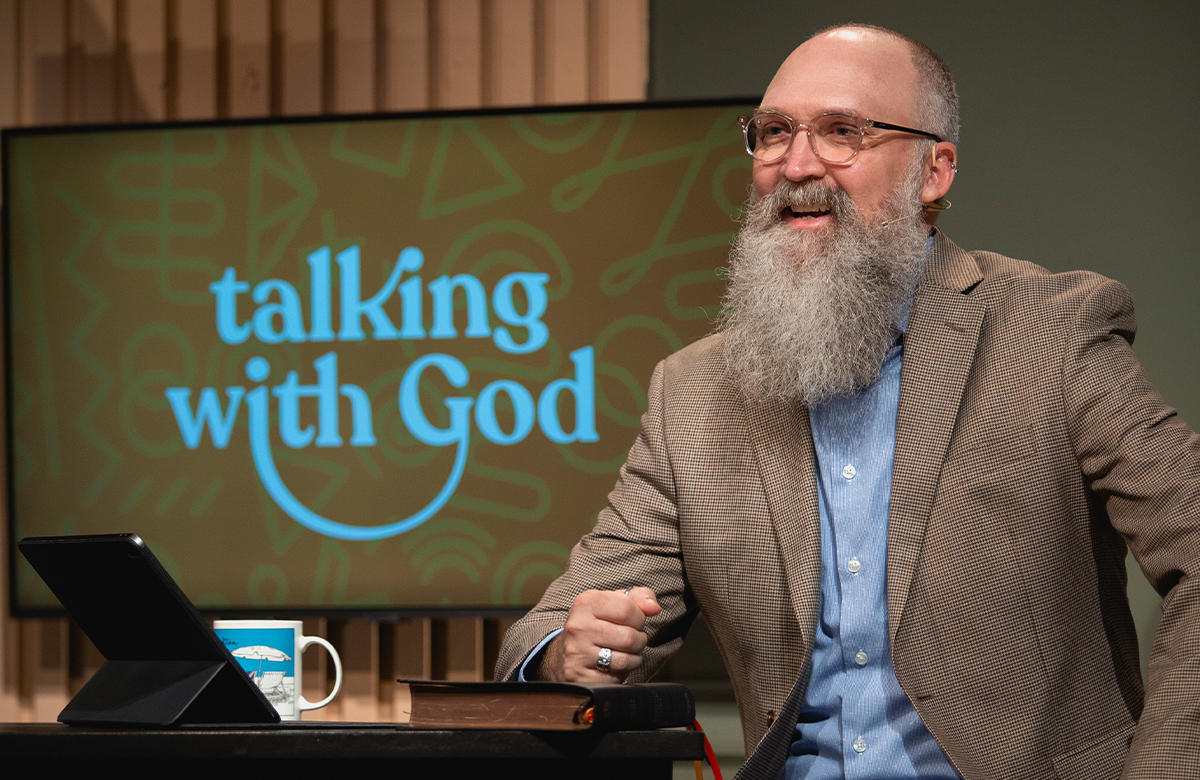
2 Corinthians
2 Corinthians
Who wrote it?
The book of 2 Corinthians 1:1 identifies the author as the apostle Paul, possibly along with Timothy.
When(ish) was it written?
This book was very likely written approximately AD 55-57.
Why was it written?
The church in Corinth began in AD 52 when Paul visited on his second missionary journey. It was then that he stayed one and a half years, the first time he was allowed to stay in one place as long as he wished. A record of this visit and the establishment of the church is found in Acts 18:1-18.
In his second letter to the Corinthians, Paul expresses his relief and joy that the Corinthians had received his “severe” letter (now lost) in a positive manner. That letter addressed issues that were tearing the church apart, primarily the arrival of self-styled (false) apostles (2 Corinthians 11:13) who were assaulting Paul’s character, sowing discord among the believers, and teaching false doctrine. They appear to have questioned his truthfulness (2 Corinthians 1:15-17), his speaking ability (2 Corinthians 10:10; 11:6), and his unwillingness to accept support from the church at Corinth (2 Corinthians 11:7-9; 12:13). There were also some people who had not repented of their licentious behavior (2 Corinthians 12:20-21).
Positively, Paul found the Corinthians had well received his “severe” letter. Paul was overjoyed to learn from Titus that the majority of Corinthians repented of their rebellion against Paul (2 Corinthians 2:12-13; 7:5-9). The apostle encourages them for this in an expression of his genuine love (2 Corinthians 7:3-16). Paul also sought to vindicate his apostleship, as some in the church had likely questioned his authority (2 Corinthians 13:3).
Some Key Verses
[quote] Not that we are sufficient in ourselves to claim anything as coming from us, but our sufficiency is from God.
– 2 Corinthians 3:5 [/quote]
[quote] And we all, with unveiled face, beholding the glory of the Lord, are being transformed into the same image from one degree of glory to another. For this comes from the Lord who is the Spirit.
– 2 Corinthians 3:18 [/quote]
[quote] Therefore, if anyone is in Christ, he is a new creation. The old has passed away; behold, the new has come.
– 2 Corinthians 5:17 [/quote]
[quote] For our sake he made him to be sin who knew no sin, so that in him we might become the righteousness of God.
– 2 Corinthians 5:21 [/quote]
[quote] We destroy arguments and every lofty opinion raised against the knowledge of God, and take every thought captive to obey Christ.
– 2 Corinthians 10:5 [/quote]
[quote] For he was crucified in weakness, but lives by the power of God. For we also are weak in him, but in dealing with you we will live with him by the power of God.
– 2 Corinthians 13:4 [/quote]
A Quick Summary
After greeting the believers in the church at Corinth and explaining why he had not visited them as originally planned (2 Corinthians 1:3–2:2), Paul explains the nature of his ministry. Triumph through Christ and sincerity in the sight of God were the hallmarks of his ministry to the churches (2 Corinthians 2:14-17). He compares the glorious ministry of the righteousness of Christ to the “ministry of condemnation” which is the Law (2 Corinthians 3:9) and declares his faith in the validity of his ministry in spite of intense persecution (2 Corinthians 4:8-18). Chapter 5 outlines the basis of the Christian faith—the new nature (2 Corinthians 5:17) and the exchange of our sin for the righteousness of Christ (2 Corinthians 5:21).
Chapters 6 and 7 find Paul defending himself and his ministry, assuring the Corinthians yet again of his sincere love for them, and exhorting them to repentance and holy living. In chapters 8 and 9, Paul exhorts the believers at Corinth to follow the examples of the brothers in Macedonia and extend generosity to the saints in need. He teaches them the principles and rewards of gracious giving.
Paul ends his letter by reiterating his authority among them (chapter 10) and concern for their faithfulness to him in the face of fierce opposition from false apostles. He calls himself a “fool” for having to reluctantly boast of his qualifications and his suffering for Christ (chapter 11). He ends his epistle by describing the vision of heaven he was allowed to experience and the “thorn in the flesh” he was given by God to ensure his humility (chapter 12). The last chapter contains his exhortation to the Corinthians to examine themselves to see whether what they profess is reality, and ends with a benediction of love and peace.
Old Testament Ties
Throughout his epistles, Paul frequently refers to the Mosaic Law, comparing it with the surpassing greatness of the Gospel of Jesus Christ and salvation by grace. In 2 Corinthians 3:4-11, Paul contrasts the Old Testament law with the new covenant of grace, referring to the Law as that which “kills” while the Spirit gives life. The Law is “carved in letters on stone” (2 Corinthians 3:7; Exodus 24:12) and it brings the knowledge of sin and its condemnation. The glory of the Law is that it reflects the glory of God, but the ministry of the Spirit is much more glorious than the ministry of the Law, because it reflects His mercy, grace, and love in providing Christ as the fulfillment of the Law.
What does this mean?
This letter is the most biographical and least doctrinal of Paul’s epistles. It tells us more about Paul as a person and as a minister than any of the others. That being said, there are a few things we can take from this letter and apply to our lives today. One thing is stewardship, not only of money, but of time as well. The Macedonians not only gave generously, but “they gave themselves first to the Lord and then by the will of God to us” (2 Corinthians 8:5). In the same way, we should dedicate not only all we have to the Lord, but all that we are. He really doesn’t need our money. He wants the heart, one that longs to serve, please, and love. Stewardship and giving to God is more than just money. God wants us to give Him our all–everything we are. We should spend our lives living to serve our Father. Our very lives should be a reflection of Him.
Discussion Questions
[expand title=”Holt Venue”]
- Take a few minutes to read aloud the Scripture from 2 Corinthians 1:1-4, 4:7-9, 4:16-18, 5:14-21, 12:6-10, 13:4. What verses or ideas stand out to you from these passages? What questions do you have? What “next step” are you considering as a result of your interaction with God’s Word?
- In what area(s) of your life are you currently suffering?
- Do you feel comfortable sharing your difficulties with others? If not, why?
- Is the Lord leading you to share Christ with someone in your life?
- Where in your life are you currently seeing the Lord’s grace most clearly?
[/expand]
[expand title=”REO Town Venue”]
- Take a few minutes to read aloud the Scripture from 2 Corinthians 5:11-21. What verses or ideas stand out to you from these passages? What questions do you have? What “next step” are you considering as a result of your interaction with God’s Word?
- What does it look like to have a life compelled by Christ’s love?
- What are the things that Paul grounded his love for Christ in?
- What are some things in your life that stir your affections for Jesus? What are some things that rob your affections for Jesus?
- Define reality: What things in your life are really compelling you? What tends to take the place of being compelled by Christ’s love? Is it working?
[/expand]
[expand title=”Westside Venue”]
- Take a few minutes to read aloud the Scripture from 2 Corinthians 5:11-21, Romans 3:23, 6:23, 5:1, 5:6-8. What verses or ideas stand out to you from these passages? What questions do you have? What “next step” are you considering as a result of your interaction with God’s Word?
- What is your life defined by? If someone summarized the most important aspects of your life and who you are in two sentences, what would you want them to say?
- When you became a Christian, did what you defined your life by change? If it has, how? If it hasn’t, should it?
- In our culture it seems increasingly acceptable to treat people differently based on personal affiliations, particularly political views. What are some ways you can treat those people well in our world that would not require you to do so?
- An ambassador does not represent his or her own interests but is sent by someone else to represent the interests of the one who did the sending. We are to be ambassadors for Jesus, who “(entrusted) to us the message of reconciliation,” and who loved even the people the world deemed unlovable. Take some time this week to pray for the people it’s hardest for you to love, and for God’s interests to take precedence over your own in your interactions with those people.
[/expand]

























